Abstract
Future physicians must learn to cope with continuing changes in access to medical information. New instructional techniques, such as problem-based learning, emphasize the importance of research skills to medical students. To investigate the feasibility of establishing library instruction as a required part of the East Tennessee State University College of Medicine curriculum for undergraduates, the university's medical library surveyed 123 medical school libraries to determine the level of instruction offered by other academic medical libraries. The survey asked whether formal instruction was offered or required, and which courses were taught at each level of undergraduate training. Analysis of the fifty-five responses revealed that 75% offered formal library instruction, and that 49% of these respondents (36% of the total sample) required all students to take such courses. The courses offered most often were library tours, online catalog instruction, and MEDLINE-on-CD-ROM classes. Overall, thirty-three different course titles were offered by responding libraries. The majority of classes involved second- and third-year students. The survey responses reveal the prevalence of required library instruction in medical school curricula, and a broad-scale commitment to the development of lifelong learning skills among future health professionals.
Full text
PDF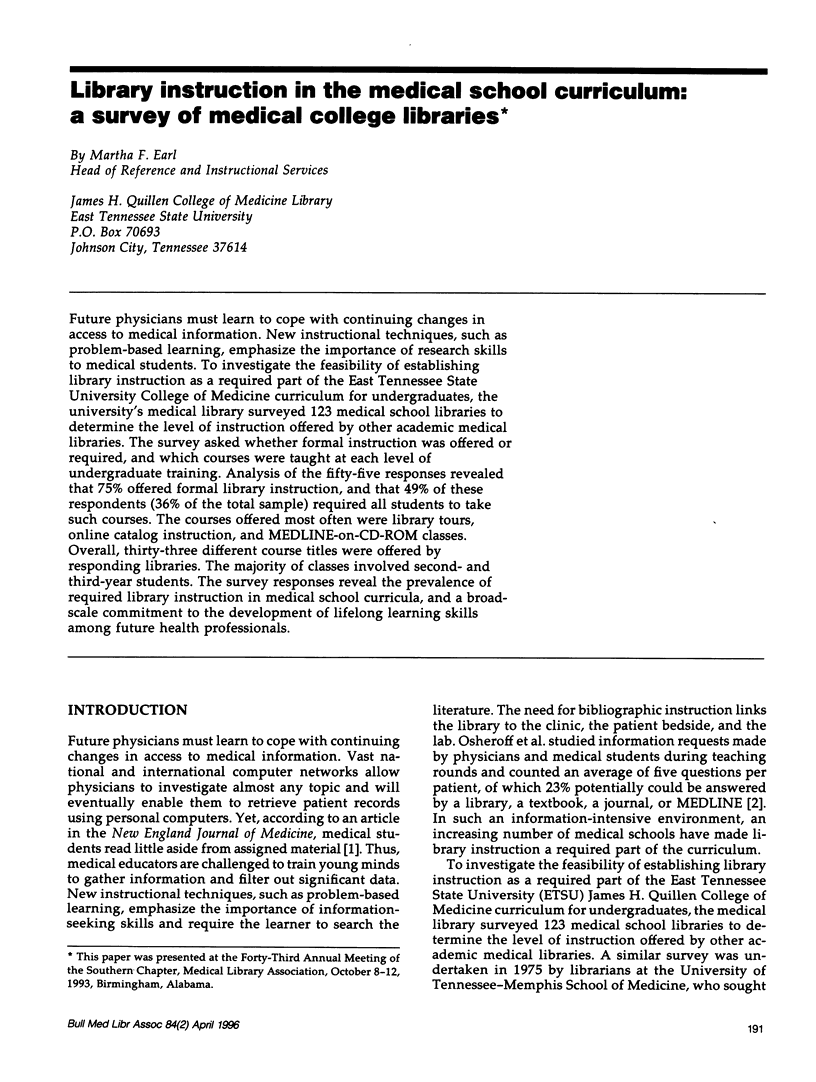
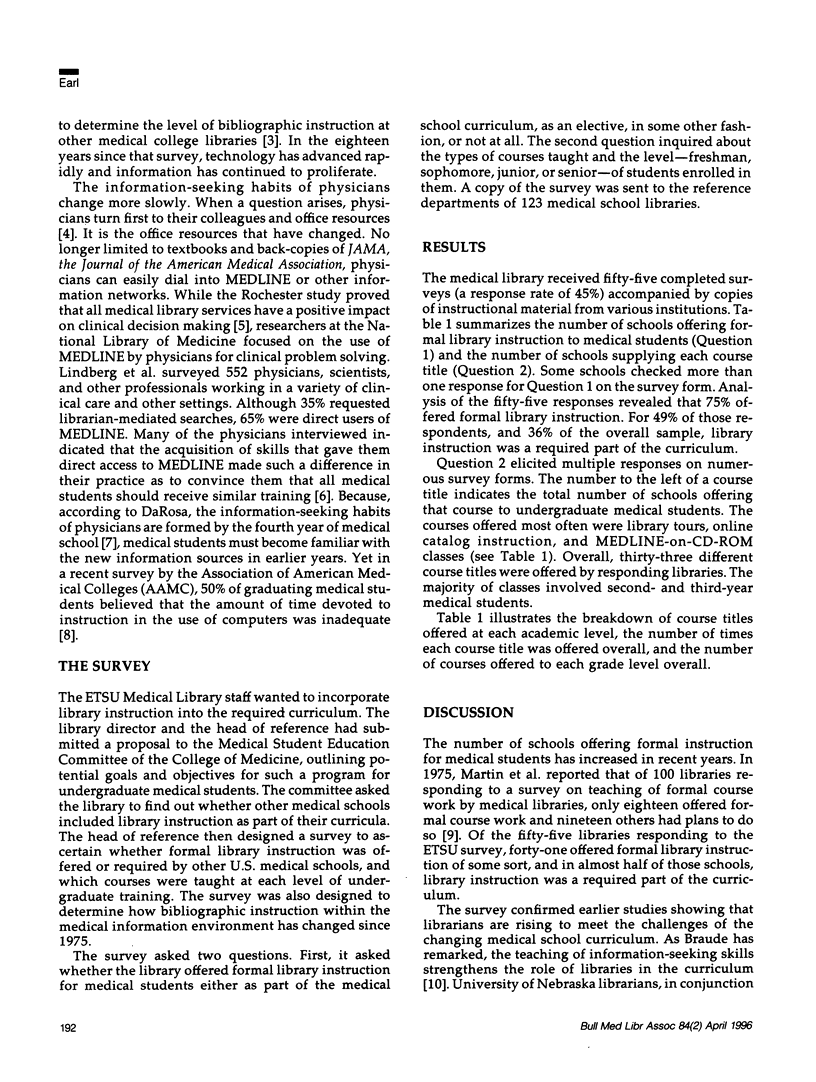
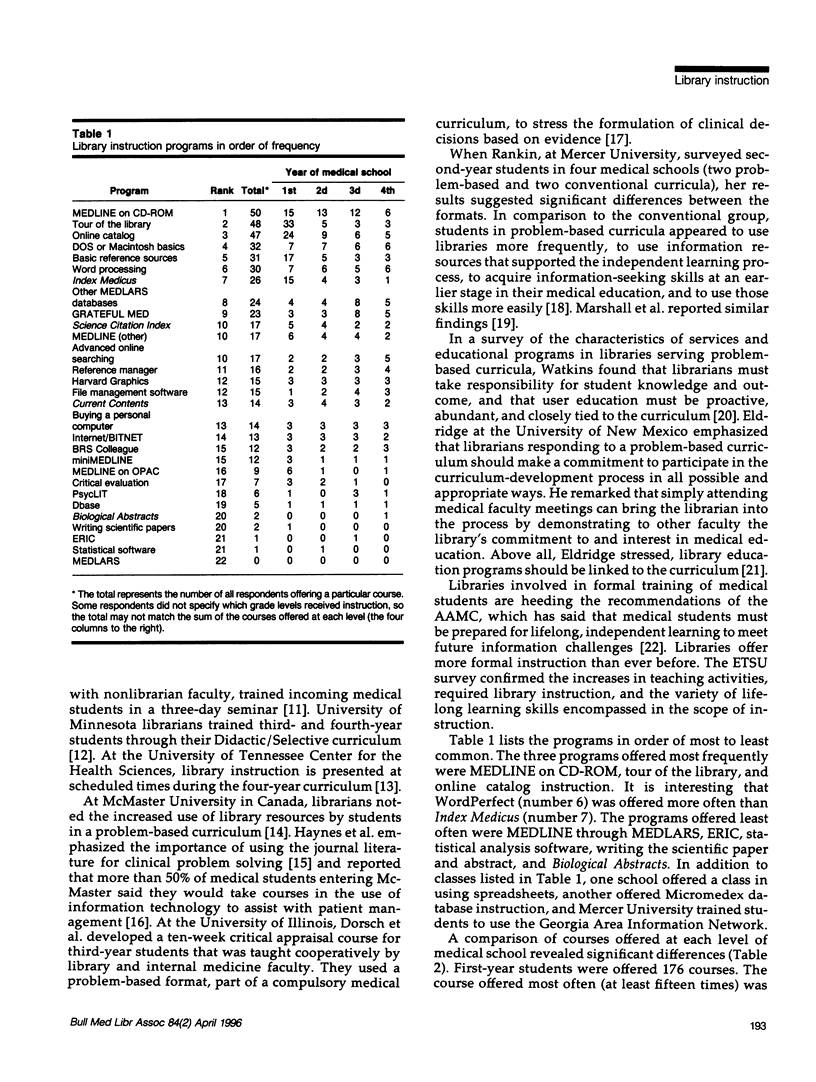
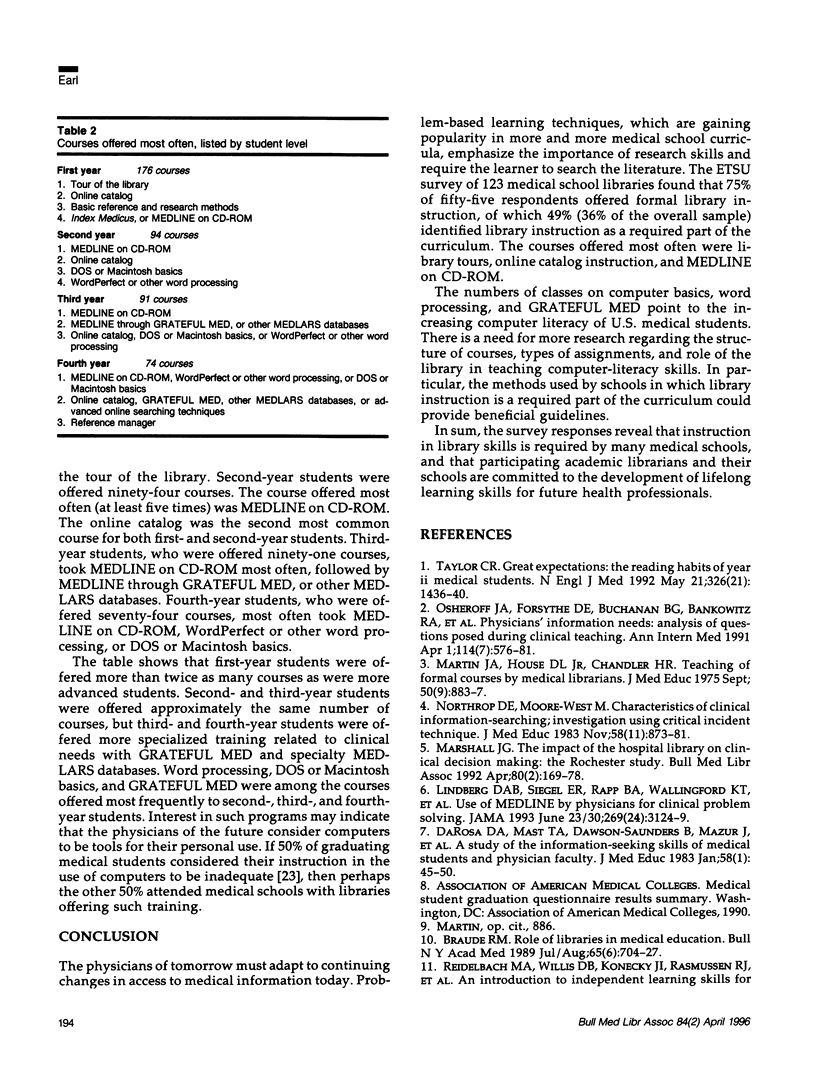
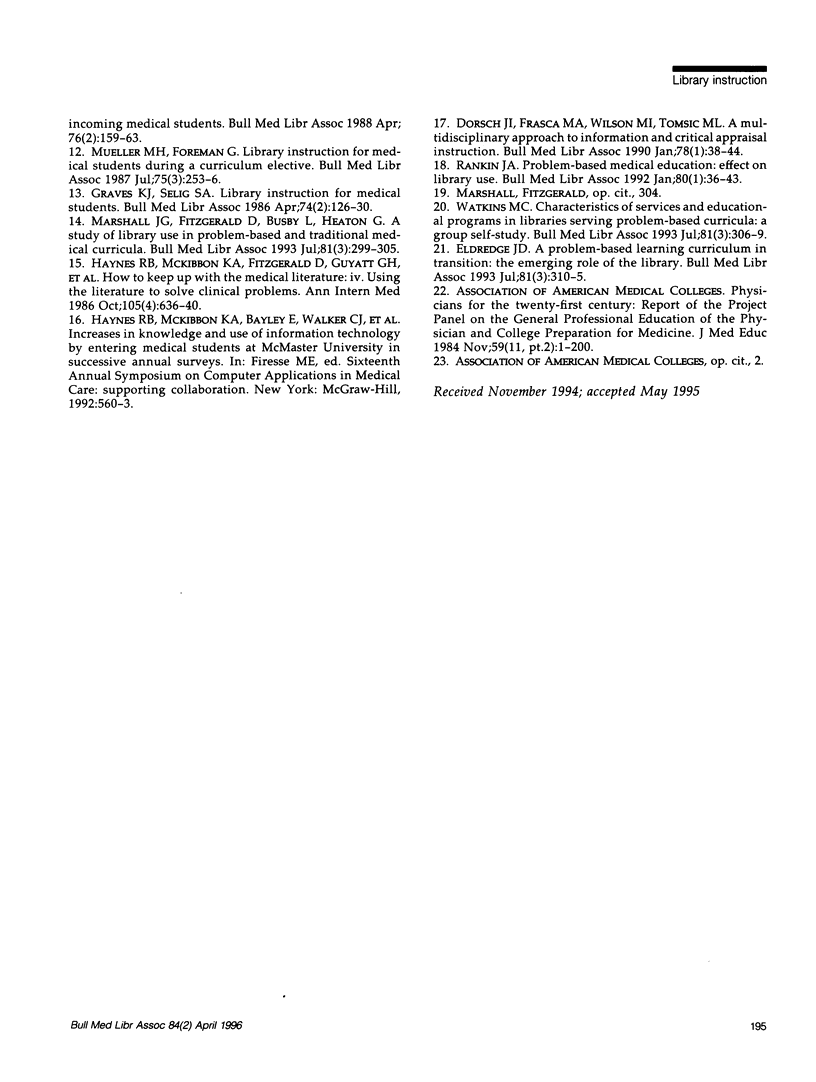
Selected References
These references are in PubMed. This may not be the complete list of references from this article.
- Braude R. M. Role of libraries in medical education. Bull N Y Acad Med. 1989 Jul-Aug;65(6):704–738. [PMC free article] [PubMed] [Google Scholar]
- DaRosa D. A., Mast T. A., Dawson-Saunders B., Mazur J., Ramsey D. E., Folse J. R. A study of the information-seeking skills of medical students and physician faculty. J Med Educ. 1983 Jan;58(1):45–50. doi: 10.1097/00001888-198301000-00009. [DOI] [PubMed] [Google Scholar]
- Dorsch J. L., Frasca M. A., Wilson M. L., Tomsic M. L. A multidisciplinary approach to information and critical appraisal instruction. Bull Med Libr Assoc. 1990 Jan;78(1):38–44. [PMC free article] [PubMed] [Google Scholar]
- Eldredge J. D. A problem-based learning curriculum in transition: the emerging role of the library. Bull Med Libr Assoc. 1993 Jul;81(3):310–315. [PMC free article] [PubMed] [Google Scholar]
- Graves K. J., Selig S. A. Library instruction for medical students. Bull Med Libr Assoc. 1986 Apr;74(2):126–130. [PMC free article] [PubMed] [Google Scholar]
- Haynes R. B., McKibbon K. A., Fitzgerald D., Guyatt G. H., Walker C. J., Sackett D. L. How to keep up with the medical literature: IV. Using the literature to solve clinical problems. Ann Intern Med. 1986 Oct;105(4):636–640. doi: 10.7326/0003-4819-105-4-636. [DOI] [PubMed] [Google Scholar]
- Lindberg D. A., Siegel E. R., Rapp B. A., Wallingford K. T., Wilson S. R. Use of MEDLINE by physicians for clinical problem solving. JAMA. 1993 Jun 23;269(24):3124–3129. [PubMed] [Google Scholar]
- Marshall J. G., Fitzgerald D., Busby L., Heaton G. A study of library use in problem-based and traditional medical curricula. Bull Med Libr Assoc. 1993 Jul;81(3):299–305. [PMC free article] [PubMed] [Google Scholar]
- Marshall J. G. The impact of the hospital library on clinical decision making: the Rochester study. Bull Med Libr Assoc. 1992 Apr;80(2):169–178. [PMC free article] [PubMed] [Google Scholar]
- Martin J. A., House D. L., Jr, Chandler H. R. Teaching of formal courses by medical librarians. J Med Educ. 1975 Sep;50(9):883–886. doi: 10.1097/00001888-197509000-00006. [DOI] [PubMed] [Google Scholar]
- Mueller M. H., Foreman G. Library instruction for medical students during a curriculum elective. Bull Med Libr Assoc. 1987 Jul;75(3):253–256. [PMC free article] [PubMed] [Google Scholar]
- Northup D. E., Moore-West M., Skipper B., Teaf S. R. Characteristics of clinical information-searching: investigation using critical incident technique. J Med Educ. 1983 Nov;58(11):873–881. [PubMed] [Google Scholar]
- Osheroff J. A., Forsythe D. E., Buchanan B. G., Bankowitz R. A., Blumenfeld B. H., Miller R. A. Physicians' information needs: analysis of questions posed during clinical teaching. Ann Intern Med. 1991 Apr 1;114(7):576–581. doi: 10.7326/0003-4819-114-7-576. [DOI] [PubMed] [Google Scholar]
- Rankin J. A. Problem-based medical education: effect on library use. Bull Med Libr Assoc. 1992 Jan;80(1):36–43. [PMC free article] [PubMed] [Google Scholar]
- Taylor C. R. Great expectations. The reading habits of year II medical students. N Engl J Med. 1992 May 21;326(21):1436–1440. doi: 10.1056/NEJM199205213262118. [DOI] [PubMed] [Google Scholar]
- Watkins M. C. Characteristics of services and educational programs in libraries serving problem-based curricula: a group self-study. Bull Med Libr Assoc. 1993 Jul;81(3):306–309. [PMC free article] [PubMed] [Google Scholar]



